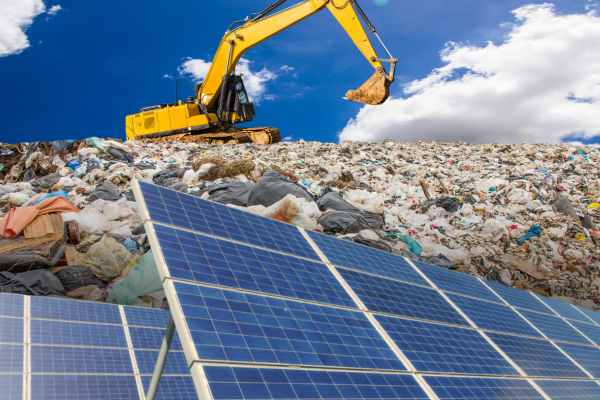Fashion giant commits to recycling
Lululemon will source around a fifth of its fibres from an Australian recycling innovator in a ten-year deal.

Canadian activewear retailer Lululemon has signed a decade-long deal to source recycled synthetics from Australian startup Samsara Eco for its apparel range.
The ‘multi-polymer offtake agreement’ follows earlier collaboration on clothing prototypes and could see Samsara Eco’s enzymatically recycled materials, sourced from discarded garments and textile scraps, make up around 20 per cent of Lululemon’s overall fibre portfolio by 2030.
Synthetic fibres like polyester and nylon are key components of much of the world’s clothing. They account for more than 60 per cent of global fibre production in 2022, with polyester holding the largest share according to Textile Exchange’s Future of Synthetics Report, published last year.
However, these fibres are emissions-intensive to produce, rely heavily on virgin petroleum, and are notoriously difficult to recycle due to their complex chemical structures.
Samsara Eco is among a small number of companies working to overcome these challenges. Its proprietary enzyme technology can break down nylon 6,6 and polyester into their raw building blocks, allowing the materials to be reused in place of virgin inputs.
“The technology to make circular materials is not a pipe dream – it is here, ready for adoption by forward-thinking companies.”
The company first teamed up with Lululemon in 2023. Last year, the partnership produced two clothing prototypes: a peach Swiftly top sample made from enzymatically recycled nylon 6,6 and a limited-edition grey packable anorak made from recycled polyester (pictured above).
Lululemon also participated in Samsara Eco’s $100 million Series A funding round last year.
The new deal is a significant boost to the startup’s scale-up and commercialisation plans, with founder and CEO Paul Riley describing the expanded collaboration as validation that the company’s technology is commercially viable.
“The technology to make circular materials is not a pipe dream – it is here, ready for adoption by forward-thinking companies,” he said. “I’m incredibly optimistic about how we will help fuel circular apparel over the next decade with Lululemon.”
Lululemon, which still sources 60% of its materials from fossil fuel-derived materials, last year faced a greenwashing complaint from French environmental group Stand.earth over its “Be Planet” advertising campaign ahead of the Paris Olympics.
The company says this latest agreement aligns with its goal to transition to lower-impact or circular materials.
“Scaling circular materials requires bold partnerships and a shared commitment to rethinking how our industry operates,” Lululemon’s chief supply chain officer, Ted Dagnese said.
“As we work toward our 2030 impact goals, we’re taking a diversified approach – investing in multiple partnerships to advance solutions and help reduce our reliance on fossil-fuel derived resources. Together with our partners, including Samsara Eco, we’re helping to turn our vision of a circular model into a reality.”
Building scale
To support the scale-up, Samsara Eco is building an innovation facility in Jerrabomberra in regional NSW, which will open in the coming months.
It says the plant will serve as a commercial production hub and will bring its science, technology and operation teams together under the one roof.
“The plant will allow us to significantly increase our production volumes and our capacity to run trials and pilot programs with brands to recycle even more plastics to create true circularity,” the company recently said.
“We’ll have more space to innovate and discover with new labs, a bigger workspace, and an even bigger production plant to produce more recycled materials for our customers and partners so less goes to landfill.”
Another production site, set to be located in South-East Asia, is expected to be operational in 2028 the company said.
Samsara Eco, in collaboration with the Australian National University, developed a patented carbon-neutral process that uses engineered enzymes to break down complex plastics like nylon 6, nylon 6,6 and polyester into their original monomers – basic building blocks that can then be reused to manufacture new fibres, eliminating the need to produce new plastic. Unlike traditional chemical recycling, which often requires high heat or harsh solvents, the enzyme-based approach can operate under milder conditions and works on mixed plastics and blended fabrics, can work at scale, and can be used in existing manufacturing processes, according to Samsara Eco.





